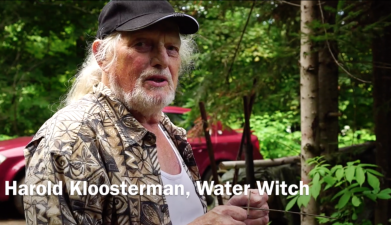 The Ahmad Family in Egypt shows us what they eat.
The Ahmad Family in Egypt shows us what they eat.
As popular uprisings continue to spread in Middle East, rising food costs for stable crops like rice and wheat cannot be ignored as underlying factors in the political unrest. In a region where Islam and anti-Westernism are usually blamed for driving populist politics, the impact of the global food crisis, combined with rising unemployment, may have surfaced unexpectedly in these countries, but not without warning.
According to Food and Agriculture Organization (FAO), the Arab world imports more than 50 percent of the food consumed and is the largest net importer of cereal in the world, larger than Asia. The same source reports 31 million of hungry people in the Arab countries, which translates to 10 percent of the total population.
Although the disparity in access to food among the 22 countries of the Arab League is wide and uneven, even oil-rich GCC countries are vulnerable. A study by NCB Capital, an offshoot of Saudi Arabia’s largest bank, National Commercial Bank, estimates that food imports account for more than 70 per cent of the total Arab farm imports in 2008.
The agricultural sector accounts for one to four per cent of the GCC’s gross domestic product, significantly lower than its 10–15 per cent contribution in relatively more water-rich Middle East nations such as Egypt and Turkey and 15–20 per cent in India and China.
Reports expect a surge in the food import bill by the GCC nations in the coming years because of investment in overseas farm ventures, the limited agricultural potential at home, low investment in the agricultural sector and rapid growth in the domestic population. This is exacerbated by an absence of unified Arab action to develop agricultural exports while farm subsidies to farmers have decreased as the prices of agricultural inputs have gone up.
In sum, the recent events in North Africa are a reminder that the Arab world is suffering acute food shortage and a future of increased food insecurity. Even the GCC countries are not immune. It would be very difficult to foresee a scenario that would eliminate food insecurity in the Arab countries.
However, as part of a broader regional and global food security plan, improved agricultural techniques would help contain the resulting food insecurity gap. Less than 1% of the value of agricultural production is allocated to scientific research in Arab nations, compared with 2.4% in developed countries. Relevant research into protected agriculture, solar energy for desalinization and greenhouse hydroponics for example have the potential to enhance domestic food self-sufficiency in the GCC countries.
As the Food and Agriculture Organization’s Food Price Index touched its highest level in January, the events of the Middle East are reminders of the urgent need for massive new investment in sustainable agriculture to provide adequate food for all.
More on Middle East-North Africa fragility:
Rising Food Prices Behind Riots in Algeria and Tunisia
Climate Change Killing the First Crops in the Cradle of Civilization
Egypt To Grab Sudanese Land To Meet Its Wheat Needs
Image via 770



